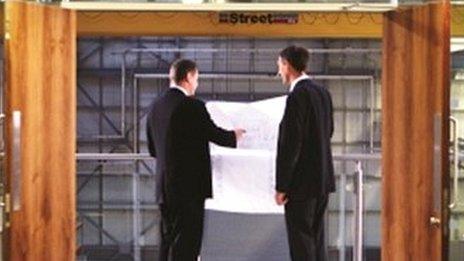Coventry's rich motoring heritage
- Published
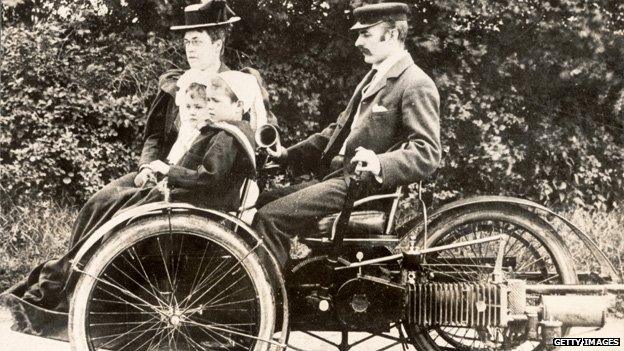
The Coventry Motette was an early attempt by the Coventry Motor Company, before the turn of the 20th Century
Announcements of two big investments in Coventry's automotive industry this week have been described as a "vote of confidence" in a city that's history is closely tied to that of the motor car.
On Tuesday, Jaguar Land Rover (JLR) said it would double the size of the plant at its headquarters in Whitley while a day later London Taxi Company (LTC) announced 1,000 new jobs at a £250m new factory outside the city.
But JLR and LTC, now both foreign-owned, are among few survivors in a city that once boasted hundreds of car manufacturers.
"Coventry was the centre of the British motoring industry from the very beginning," says Stephen Laing, curator of the Heritage Motor Centre.
"It was essentially like America's Detroit."
As Henry Ford was setting himself up in the USA, Coventry became the birthplace of the British motor industry.
In 1896, Harry Lawson, who had made his money making bicycles, bought a former textile mill and produced the first Coventry Daimler there.
The company was one of several to set up in the city, inspired by the recent German invention of the motor car.
According to the National Transport Museum, 1896 was also the date of the first speeding fine, issued to Walter Arnold, from Kent, who was pulled over by a policeman on a bike for travelling at an estimated 8mph.
Within 30 years, Daimler had been joined by hundreds of other car manufacturers in the city, Chris Van Schaardenburgh, curator at the Coventry Transport Museum said.
The area around Coventry would ultimately attract names such as Jaguar, Armstrong Siddeley, Alvis, Hillman, Chrysler, Triumph, Singer, Humber, Lanchester and Rover, among many others.

A worker touches up the paintwork on an E-Type Jaguar at the Coventry plant in 1961
"In many cases it started with the cycle industry in Coventry," Mr Van Schaardenburgh said. "A lot of the manufacturers started to experiment with motor vehicles that had come over from Germany.
"You could take it back even further to the watch industry in Coventry. As the industry started to decline a lot of them started to switch to the cycle industry. A lot of the skills were the same.
"In those days there was less moving around, so you had to look at the skills in the area and what was available in the supply chain."
Mr Laing said the early motorbikes and cars shared very similar technology to that used in the manufacture of bicycles.
He said existing manufacturers in Coventry were joined by others keen to make the most of the "pool of expertise".
After World War Two, however, many of the firms struggled to survive and either went out of business, or were absorbed within larger companies.
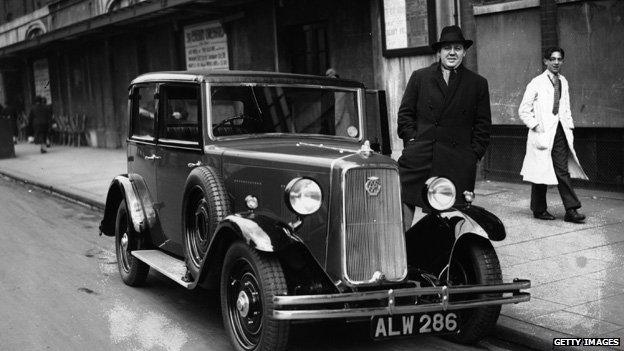
Actor Charles Laughton was one of a number of stars to buy an Armstrong Siddeley in the 1930s
A number of them were brought under the British Leyland umbrella, which at its height was responsible for more than a third of all cars produced in the UK.
Mr Van Schaardenburgh said it was the 1970s that marked the real decline for automotive manufacturing in Coventry.
In the early part of the decade, volume car manufacturing peaked in the UK.
But then issues over quality, bad management, union and labour disputes combined to signal the end of the good times, he said.
At the same time, the sector also saw increased competition from European and Japanese manufacturers.
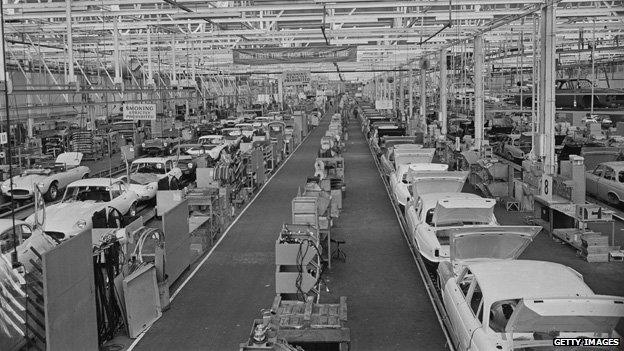
Jaguar's Browns Lane plant was brought to a halt by power shortages during the 1972 miners' strike
In the 1980s, Coventry, like may other cities, was hit by recession.
Even so, a number of manufacturers survived and the industry is still "crucial" to Coventry and the West Midlands to this day, including household names such as Jaguar and Aston Martin.
"It's never stopped being a city with a motoring tradition and with the recent news of expansion its expanding that tradition once again," Mr Laing said.
Last year, the British automotive sector turned over almost £60bn and employed more than 730,000 people, according to the Society of Motor Manufacturers and Traders.
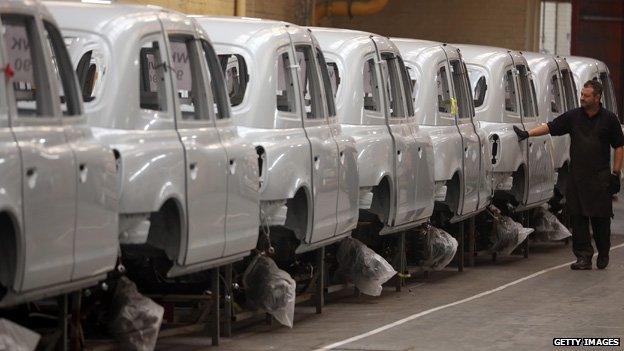
London Taxi Company expects to increase its workforce from 240 to more than 1,200
- Published26 March 2015
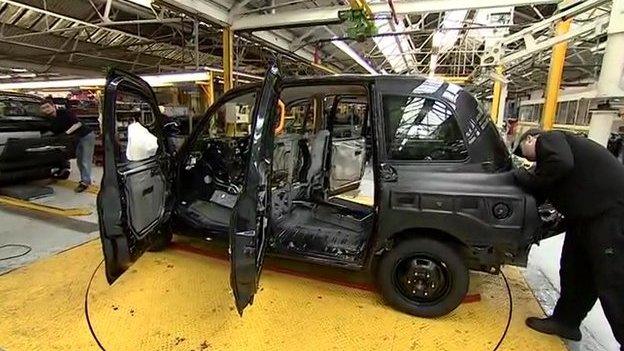
- Published25 March 2015
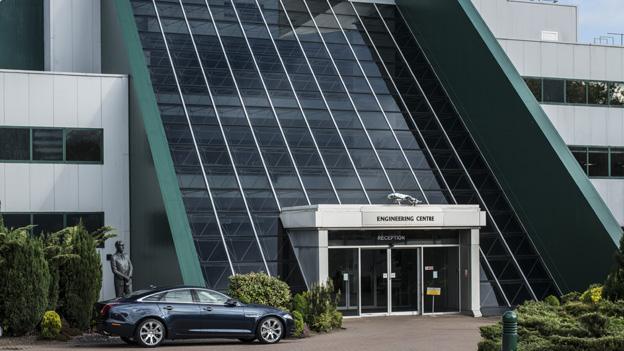
- Published14 January 2013
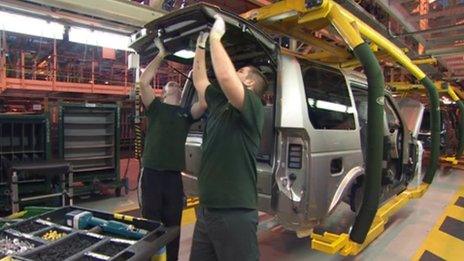
- Published8 November 2013
